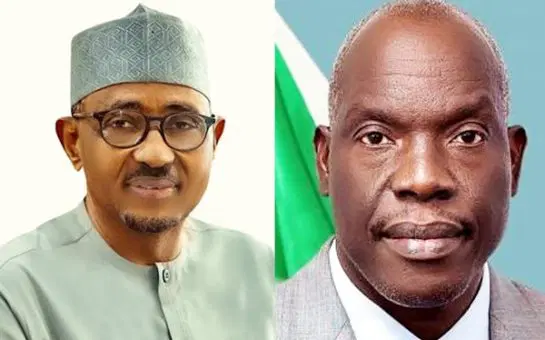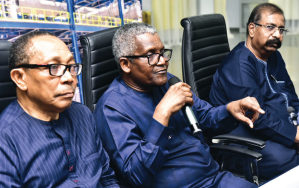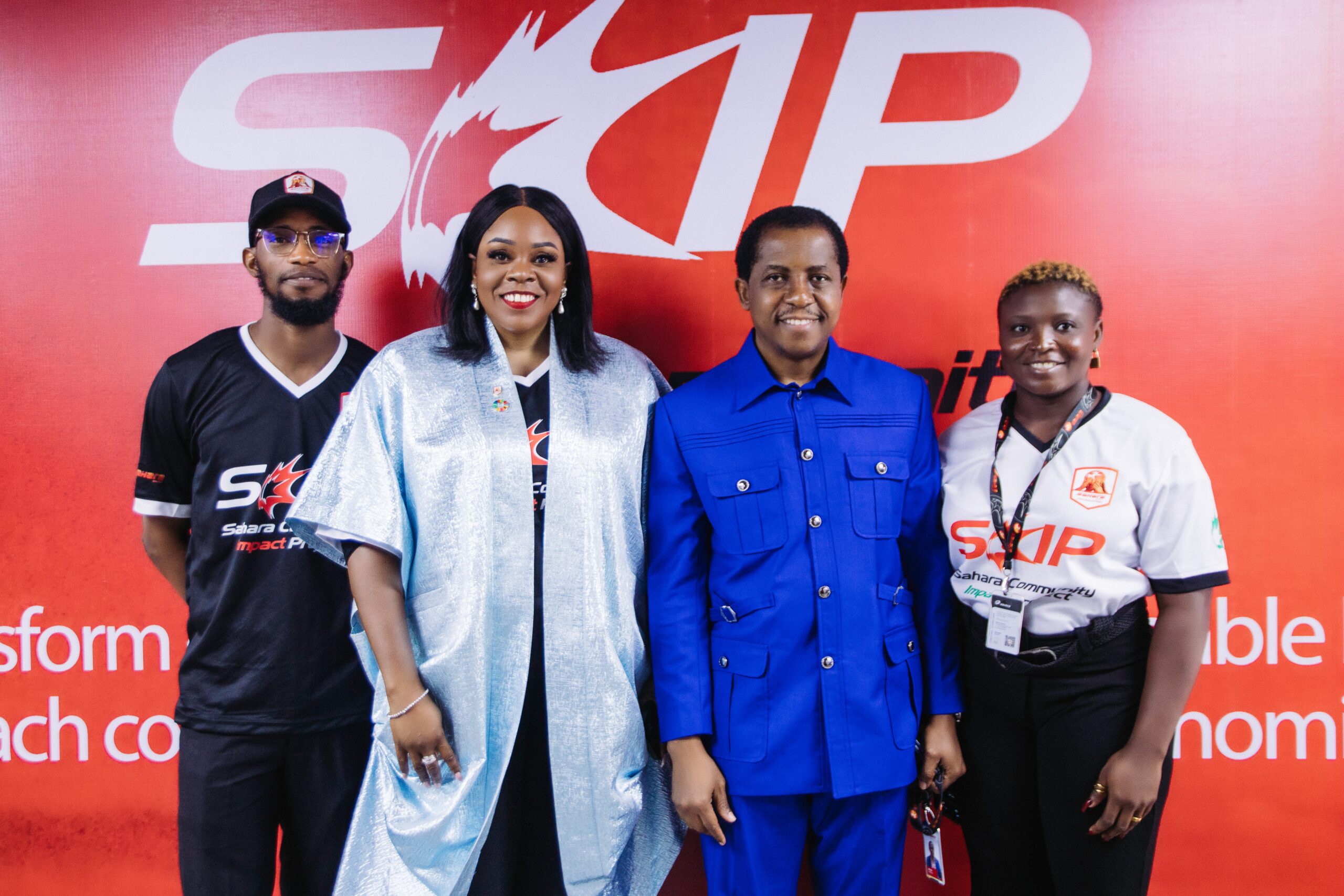Business
‘How to close Africa’s $70b infrastructure gap’

Africa’s greatest obstacle is not a shortage of capital but a shortage of bankable projects. That was the central message from the PMI Global Summit Series Africa in Kigali, where African Development Bank (AfDB) leaders and nearly 1000 delegates emphasised that poorly prepared projects remain the biggest barrier to the continent’s transformation. The Summit, the largest of its kind on the continent, served as a powerful platform to discuss how Africa can turn its vast potential into reality through bankable projects, professional project management, and strategic partnerships that deliver long-term impact.
Former AfDB president, Dr. Akinwumi Adesina, said Africa is at a pivotal moment in history. “The world is becoming more African,” he said, adding that one in four people on the planet will soon be African. With 65per cent of the world’s uncultivated arable land, abundant critical minerals for the green transition, and 13 of the world’s fastest-growing economies, Africa is poised to drive global prosperity.
Yet to realise this potential, he stressed, Africa must close its infrastructure gap, estimated at $70 billion annually, and ensure that projects deliver real impact. “Projects must not just exist on paper. They must change lives. As one Kenyan beneficiary told me, ‘We once were in darkness. Now we have light.’ That is the true measure of success,” he said.
Adesina highlighted AfDB’s High 5 priorities, Light up and Power Africa, Feed Africa, Industrialise Africa, Integrate Africa, and Improve Quality of Life, which have already impacted over 565 million people. From expanding electricity access to building transport corridors and digital infrastructure, he emphasised that projects are the vehicles of transformation.
Also speaking, MD, PMI Sub-Saharan Africa, George Asamani, said: “At PMI, we believe project success is not measured only by schedules and budgets, but by outcomes that change lives. Dr. Adesina captured this perfectly when he said projects must change lives. Africa’s future will be shaped not by the number of projects we launch, but by the impact those projects deliver.”
Building on this vision, Director, Development Impact and Results Department at the AfDB, Armand Nzeyimana, spotlighted a persistent obstacle: the shortage of well-prepared, bankable projects.
He explained that a bankable project is one that meets three essential tests: technical feasibility, with proven designs and resilient standards; financial viability, with clear revenue models and acceptable risk-return profile for investors; and robust risk management, where currency, political, and market risks are identified, allocated, and mitigated.
“Without these fundamentals, even the most noble intentions cannot secure the financing needed to move from paper to reality,” Nzeyimana said.
He warned that poor preparation comes at a steep cost. Projects designed for five years often stretch to eight or more, with completion timelines extended by up to 50 per cent. “The cost of delay is not just financial, it is developmental. Every missed deadline slows progress on the Sustainable Development Goals and leaves millions waiting for essential services. Today, 600 million Africans remain without electricity. That statistic will not change without bankable projects,” he said.
The choice of Kigali as host city reinforced the Summit’s theme: “Africa On Purpose.” Rwanda’s rapid transformation, ranging from major infrastructure investments to its growing role as a hub for tourism, sport, and innovation, offered delegates a vivid demonstration of purposeful leadership and disciplined execution. “Kigali is changing by the day and it shows what is possible when vision is matched with planning and delivery,” ,” Adesina noted.
Throughout the Summit, a clear consensus emerged: project management is not just a discipline but a strategic enabler of Africa’s transformation. By embedding PMI’s global standards, certifications, and methodologies into Africa’s project landscape, the continent can build the capacity needed to deliver transformative projects at scale.
Adesina proposed a deeper strategic alliance between PMI and AfDB. “Even as I near the end of my term, I see extraordinary opportunities for the AfDB and PMI to forge a strategic alliance that raises global standards in project delivery. We can create learning partnerships that blend PMI’s global methodologies with the Bank’s deep experience in cross-border initiatives, while building the next generation of African project professionals among the world’s most capable. Africa is brimming with opportunities, but to seize them, we must develop and execute projects at scale, with excellence and purpose.”
As the Summit concluded, delegates agreed that Africa’s future will not be defined by its resources alone, but by its ability to prepare, finance, and execute projects with excellence. From renewable energy to digital transformation, from regional trade corridors to urban renewal, the projects planned today will shape Africa for decades to come.
Energy
NMDPRA’s Farouk Ahmed, NUPRC’s Komolafe resign

- President Tinubu nominates successors
THE embattled Chief Executive of the Nigerian Midstream and Downstream Petroleum Regulatory Authority NMDPRA Engr. Farouk Ahmed and his counterpart in the Nigerian Upstream Petroleum Regulatory Commission, NUPRC, Gbenga Komolafe, have resigned.
Already, President Bola Tinubu has asked the Senate to approve the nominations of two new chief executives for the NMDPRA and the NUPRC.
A statement by the presidential spokesman, Bayo Onanuga, explained that the President’s requests followed the resignation of the duo.
Both officials were appointed in 2021 by former President Buhari to lead the two regulatory agencies created by the Petroleum Industry Act (PIA).
To fill these positions, President Tinubu has written to the Senate, requesting expedited confirmation of Oritsemeyiwa Amanorisewo Eyesan as CEO of NUPRC and Engineer Saidu Aliyu Mohammed as CEO of NMDPRA.
The two nominees are seasoned professionals in the oil and gas industry.
Eyesan, a graduate of Economics from the University of Benin, spent nearly 33 years with the NNPC and its subsidiaries. She retired as Executive Vice President, Upstream (2023–2024), and previously served as Group General Manager, Corporate Planning and Strategy at NNPC from 2019 to 2023.
Engineer Saidu Aliyu Mohammed, born in 1957 in Gombe, graduated from Ahmadu Bello University in 1981 with a Bachelor’s in Chemical Engineering. He was announced today as an independent non-executive director at Seplat Energy.
His prior roles include Managing Director of Kaduna Refining and Petrochemical Company and Nigerian Gas Company, as well as Chair of the boards of West African Gas Pipeline Company, Nigeria LNG subsidiaries and NNPC Retail.
He also served as Group Executive Director/Chief Operating Officer, Gas & Power Directorate, where he provided strategic leadership for major gas projects and policy frameworks, including the Gas Masterplan, Gas Network Code, and contributions to the Petroleum Industry Act (PIA).
Engineer Mohammed played a pivotal role in delivering key projects such as the Escravos–Lagos Pipeline Expansion, the Ajaokuta–Kaduna–Kano (AKK) Gas Pipeline, and Nigeria LNG Train.

- Above advert placement contains allegations against the erstwhile NMDPRA Chief Executive, Farouk Ahmed
Recall that on Monday, the Dangote Refinery and Petrochemicals accused the NMDPRA led by Farouk Ahmed of undermining its refinery.
The President, Dangote Group, Aliko Dangote, also accused the regulating agency of economic sabotage and urged the government to probe its activities and also probe NMDPRA Chief Executive Officer (CEO), Farouk Ahmed.
He accused NMDPRA leadership of colluding with international traders and oil importers to frustrate local refining through the continued issuance of import licences for petroleum products.
Alleging that Ahmed had been living above his means, Dangote said the bills being picked by the NMDPRA boss raised serious questions about potential conflicts of interest and the integrity of regulatory oversight in the downstream petroleum sector.
Dangote said: “I am not calling for his removal, but for a proper investigation. He should be required to account for his actions and demonstrate that he has not compromised his position to the detriment of Nigerians. What is happening amounts to economic sabotage.”
The business mogul said: “The Code of Conduct Bureau (CCB), or any other body deemed appropriate by the government, can investigate him.
Energy
Dangote alleges sleaze in NMDPRA

• Industrialist seeks probe of agency
• Petrol to sell for N740 from tomorrow
Dangote Refinery and Petrochemicals yesterday accused the regulating agency of downstream sector of undermining its refinery.
He accused Nigerian Midstream and Downstream Petroleum Regulatory Authority (NMDPRA) of economic sabotage and urged the government to probe its activities.
President of the Dangote Refinery, Alhaji Aliko Dangote, who spoke in Lagos yesterday at a news conference urged the government to also probe NMDPRA Chief Executive Officer (CEO), Farouk Ahmed.
He accused NMDPRA leadership of colluding with international traders and oil importers to frustrate local refining through the continued issuance of import licences for petroleum products.
Alleging that Ahmed had been living above his means, Dangote said the bills being picked by the NMDPRA boss raised serious questions about potential conflicts of interest and the integrity of regulatory oversight in the downstream petroleum sector.
He assured of further fall in the pump price of petrol. He said the product would sell at no more than N740 per litre from tomorrow in Lagos, because of his refinery’s reduction of gantry price to N699 per litre.
He said MRS filling stations would be the first to reflect the new pricing.
Expressing concern over the state of the downstream sector, Dangote said Nigeria’s continued reliance on fuel imports was harming local production and discouraging investment in domestic refining.
He said import licences covering approximately 7.5 billion litres of PMS had reportedly been issued for the first quarter of 2026, despite the availability of significant domestic refining capacity.
According to him, modular refineries are already struggling under the current policy environment and on the brink of extinction, while the persistent issuance of import permits further weakens the sector.
Dangote said: “I am not calling for his removal, but for a proper investigation. He should be required to account for his actions and demonstrate that he has not compromised his position to the detriment of Nigerians. What is happening amounts to economic sabotage.”
The business mogul said: “The Code of Conduct Bureau (CCB), or any other body deemed appropriate by the government, can investigate him.
He described the downstream petroleum sector as being under severe strain, alleging the presence of entrenched interests that profit from fuel imports at the expense of national development.
“There are powerful interests in the oil sector. It is troubling that African countries continue to import refined products despite long-standing calls for value addition and domestic refining. The volume of imports being allowed into the country is unethical and does a disservice to Nigeria,” he added.
Dangote stressed the need for a clear separation between regulatory oversight and commercial interests, warning that allowing traders to influence regulation would undermine the integrity of the sector.
“The downstream sector must not be destroyed by personal interests. A trader should never be a regulator. Forty-seven licences have been issued, yet no new refineries are being built because the environment is not conducive,” he said.
He maintained that Nigerians would ultimately benefit from local refining, fuel importers incur losses. Dangote said he would not relent in ensuring that Nigerians enjoy the benefits of domestic refining, noting that the company was working around the clock to ensure that recent reductions in the gantry price were fully reflected at the retail level.
“From Tuesday (tomorrow)”, he said, “all MRS filling stations would begin selling PMS at prices not exceeding N740 per litre, starting in Lagos.”
He added that the refinery had reduced its minimum purchase requirement from two million litres to 500,000 litres to enable more marketers, including members of the Independent Petroleum Marketers Association of Nigeria (IPMAN), to participate.
“So, if you come to the refinery today, you will get PMS at N699 per litre,” he said.
Dangote explained that despite frustration and sabotage, the refinery would deploy its Compressed Natural Gas (CNG) trucks in the coming days and was prepared to procure additional units beyond the initial 4,000 if required to sustain affordable pricing nationwide.
Responding to complaints from oil importers that the recent price reduction would result in losses, Dangote said the refinery was established primarily for the benefit of Nigerians.
“Anyone who chooses to continue importing despite the availability of locally refined products should be prepared to face the consequences,” he said.
He also highlighted quality differences, noting that products supplied through MRS and other off-takers from the refinery were straight-run fuels, unlike blended products imported from overseas markets.
“Nigerians have a choice to buy better quality fuel at a more affordable price or to buy blended PMS at a higher rate. Importers can continue to lose, so long as Nigerians benefit,” he added.
Dangote said the refinery was driven more by legacy than profit, noting that he could have invested the 20 billion dollars elsewhere if financial gain were his sole objective.
He reaffirmed the plan to list the refinery on the Nigerian Exchange to allow Nigerians to own shares in the facility.
“We want every living Nigerian to have the opportunity to benefit, no matter how small their holding. If the market takes 55 per cent and I retain 45 per cent, I am satisfied,” he said.
Dangote explained that discussions were ongoing with the Securities and Exchange Commission (SEC) to enable Nigerians to purchase shares in naira while receiving dividends in dollars.
Dangote accused the NMDPRA of misrepresenting the refinery’s capacity by publishing off-take figures rather than actual production levels.
“We have the capacity to meet local demand, and we have sufficient refined products in stock. But to keep prices high, imports are deliberately encouraged,” he said, adding that attempts were being made to push the refinery into exporting products only for them to be re-imported into Nigeria at higher prices.
“This refinery is for Nigerians first, and I am not giving up,” he said.
Dangote also explained that the refinery imports an average of 100 million barrels of crude oil annually from the United States, a figure expected to rise to 200 million barrels following expansion, due to insufficient domestic crude supply.
He added that the refinery also sources crude from Ghana and other countries, while exporting jet fuel and gasoline to the United States (U.S.).
Dangote further alleged that domestic refiners are forced to buy Nigerian crude at premiums of up to four dollars per barrel from the trading arms of international oil companies, placing them at a competitive disadvantage.
He called on the government to ensure crude oil taxes are assessed based on actual transaction values, warning that the current system allows under-declaration and revenue losses.
Enterprenuership
Sahara Group Foundation’s Community Impact Project Drives Economic Transformation in Africa

By Olamide Akintunde
Sahara Group Foundation, the social responsibility division of international energy conglomerate, Sahara Group, has launched the Sahara Community Impact Project (SCIP), an initiative designed to accelerate economic transformation across African communities. This bold step underscores Sahara’s unwavering commitment to fostering inclusive growth, sustainability, and innovation through strategic community partnerships.
Director, Sahara Group Foundation, Chidilim Menakaya, told media stakeholders that the initiative focuses on establishing community business hubs that leverage local economic niches to foster entrepreneurship and empower small businesses. “From agriculture, trade, craftsmanship, services, to emerging innovation, Sahara Group Foundation is looking to ultimately build specialised regional hubs with export potential by unlocking local talent and enterprise potential, “she said.
Menakaya said SCIP hubs will serve as engines for job creation, and long-term business sustainability, leveraging Sahara’s EXTRApreneurship model to empower individuals and reduce resource waste.
“At Sahara Group Foundation, we define impact as the ability to drive real, sustainable transformation in the lives of individuals and the communities we serve. SCIP embodies this vision by creating business hubs that not only empower local entrepreneurs but also propel economic resilience and innovation across Africa.”
Bethel Obioma, Head, Corporate Communications, Sahara Group said said SCIP would pilot in Nigeria and ultimately become the template for replicating similar interventions to kick-start “community-led economic transformation across Africa.”
“SCIP is more than a project; it is a commitment to building sustainable communities through capacity building, job creation, and strategic partnerships. By reducing resource waste and improving production efficiency, Sahara is laying the foundation for a future where communities can compete globally while preserving local identity.”
SCIP officially kicks off in January 2026. Interested communities or entrepreneurs can submit applications through Sahara Group Foundation’s official channels. These applications will be reviewed for alignment with SCIP’s parameters, and selected participants will undergo training and mentorship to strengthen their business models. SCIP is guided by an in-built assessment procedure that ensures sustainability and measurable impact.
The Community Business Hubs will provide shared processing and production facilities to reduce costs, improve product quality, offer training and capacity-building in entrepreneurship, financial literacy, branding and digital skills, and strengthen market access through collective visibility and structured value chains. The hubs will also enhance access to financing via partnerships with financial institutions.
Urging media partners, community leaders, entrepreneurs, and the public to join in amplifying the transformative initiative, David Ayinde, Project Lead Sahara Group foundation, said the community referral call will go live in Q1 2026. “Through sustained media reports and collaborative participation and support from all stakeholders, we envision SCIP becoming a beacon of sustainable development, empowering communities to grow from within”.
For more information about SCIP and the EXTRApreneurship initiatives of Sahara Group Foundation, please visit: www.saharagroupfoundation.org.
-

 Art & Life9 years ago
Art & Life9 years agoThese ’90s fashion trends are making a comeback in 2017
-

 Entertainment9 years ago
Entertainment9 years agoThe final 6 ‘Game of Thrones’ episodes might feel like a full season
-

 Art & Life9 years ago
Art & Life9 years agoAccording to Dior Couture, this taboo fashion accessory is back
-

 Business9 years ago
Business9 years agoThe 9 worst mistakes you can ever make at work
-

 Entertainment9 years ago
Entertainment9 years agoThe old and New Edition cast comes together to perform
-

 Sports9 years ago
Sports9 years agoPhillies’ Aaron Altherr makes mind-boggling barehanded play
-

 Entertainment9 years ago
Entertainment9 years agoMod turns ‘Counter-Strike’ into a ‘Tekken’ clone with fighting chickens
-

 Entertainment9 years ago
Entertainment9 years agoDisney’s live-action Aladdin finally finds its stars





